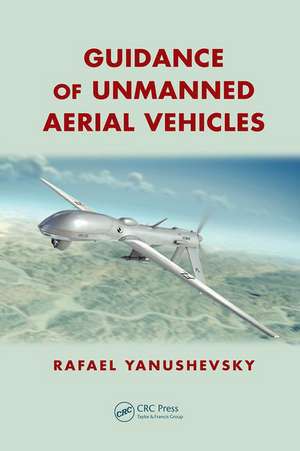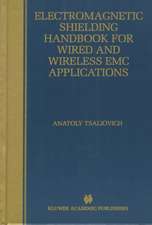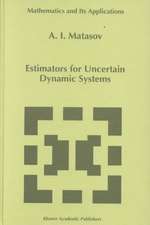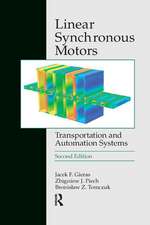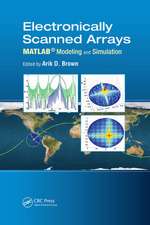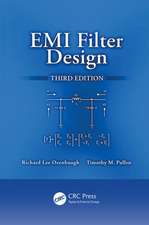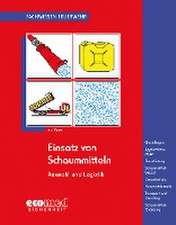Guidance of Unmanned Aerial Vehicles
Autor Rafael Yanushevskyen Limba Engleză Paperback – 30 mar 2017
Special attention is paid to guidance of autonomous UAVs, which differs from traditional missile guidance. The author explains UAV applications, contrasting them to a missile’s limited ability (or inability) to control axial acceleration. The discussion of guidance laws for UAVs presents a generalization of missile guidance laws developed by the author. The computational algorithms behind these laws are tested in three applications—for the surveillance problem, the refueling problem, and for the motion control of a swarm of UAVs. The procedure of choosing and testing the guidance laws is also considered in an example of future generation of airborne interceptors launched from UAVs.
The author provides an innovative presentation of the theoretical aspects of unmanned aerial vehicles’ guidance that cannot be found in any other book. It presents new ideas that, once crystallized, can be implemented in the new generation of unmanned aerial systems.
| Toate formatele și edițiile | Preț | Express |
|---|---|---|
| Paperback (1) | 703.12 lei 6-8 săpt. | |
| CRC Press – 30 mar 2017 | 703.12 lei 6-8 săpt. | |
| Hardback (1) | 1933.92 lei 6-8 săpt. | |
| CRC Press – 29 mar 2011 | 1933.92 lei 6-8 săpt. |
Preț: 703.12 lei
Preț vechi: 857.47 lei
-18% Nou
Puncte Express: 1055
Preț estimativ în valută:
134.58€ • 146.24$ • 113.12£
134.58€ • 146.24$ • 113.12£
Carte tipărită la comandă
Livrare economică 21 aprilie-05 mai
Preluare comenzi: 021 569.72.76
Specificații
ISBN-13: 9781138074545
ISBN-10: 1138074543
Pagini: 376
Ilustrații: 602; 16 Tables, black and white; 104 Illustrations, black and white
Dimensiuni: 156 x 234 mm
Greutate: 0.52 kg
Ediția:1
Editura: CRC Press
Colecția CRC Press
Locul publicării:Boca Raton, United States
ISBN-10: 1138074543
Pagini: 376
Ilustrații: 602; 16 Tables, black and white; 104 Illustrations, black and white
Dimensiuni: 156 x 234 mm
Greutate: 0.52 kg
Ediția:1
Editura: CRC Press
Colecția CRC Press
Locul publicării:Boca Raton, United States
Public țintă
Professional Practice & DevelopmentCuprins
Basics of Guidance. Control of Lateral Motion. Control of Longitudinal and Lateral Motions. Analysis of Proportional Navigation Guided Systems in Time Domain. Analysis of Proportional Navigation Guided Systems in the Frequency Domain. Design of Guidance Laws Implementing Parallel Navigation: Frequency-Domain Approach. Guidance Law Performance Analysis Under Stochastic Inputs. Guidance of UAVs. Testing Guidance Laws Performance. Integrated Design. Guidance Laws for Boost-Phase Interceptors Launched from UAVs. Appendices.
Notă biografică
Rafael Yanushevsky was born in Kiev, Ukraine. He received a BS in mathematics and a MS (with honors) in electromechanical engineering from Kiev University and the Kiev Polytechnic Institute, respectively. He earned a Ph.D in optimization of multivariable systems in 1968 from the Institute of Control Sciences of the USSR Academy of Sciences, Moscow, Russia. After immigration to the United States in December 1987, he started teaching at the University of Maryland, first in the Department of Electrical Engineering, then in the Department of Mechanical Engineering, He also taught at the University of the District of Columbia in the Department of Mathematics. Since 1999, Dr. Yanushevsky has been involved in projects related to the aerospace industry.
Recenzii
This book provides very detailed analytical descriptions of guidance laws for UAVs … I think it is a good reference book for those who are involved or are interested in autonomous UAV control systems. The concrete theoretical aspects provided in this book will help reader to further explore optimal solutions towards future and autonomous UAVs.
—Dr. Shigang Yue, The Aeronautical Journal, May 2012
—Dr. Shigang Yue, The Aeronautical Journal, May 2012
Descriere
Written by an expert with more than 30 years of experience, Guidance of Unmanned Aerial Vehicles contains new analytical results, taken from the author’s research, that can be used for analysis and design of unmanned aerial vehicles guidance and control systems. This book progresses from a clear elucidation of guidance laws and unmanned aerial vehicle dynamics to the modeling of their guidance and control systems. The author provides an innovative presentation of the theoretical aspects of unmanned aerial vehicles’ guidance that cannot be found in any other book. It presents new ideas that, once crystallized, can be implemented in the new generation of unmanned aerial systems.
